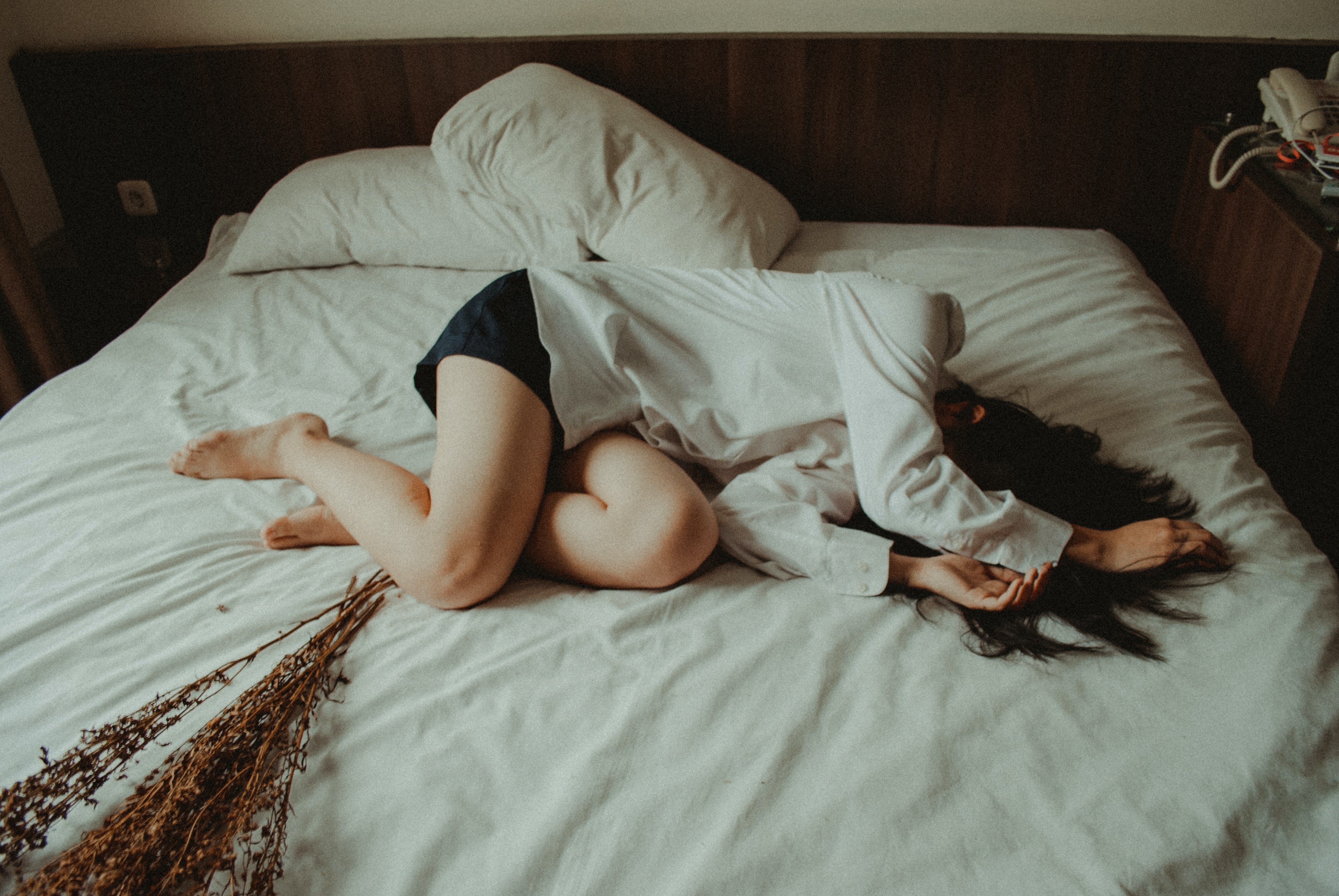How To Make Your Period End Faster: 10 Top Tips

For many women, menstruation can be an unwelcome monthly guest that brings discomfort, mood swings, and inconvenience. While it's a natural and essential part of a woman's reproductive cycle, it can come with discomfort, mood swings, and inconvenience. It's no wonder that one of the most common questions asked is, "How can I make my period end faster?".
In this guide, we'll explore ten top tips to help end your period faster.
How long do periods last?
Before looking into the tips to speed up your period, it's important to understand the typical length of menstrual cycles. A menstrual cycle usually lasts between 21 and 35 days, with the bleeding (your period) lasting between 2 - 7 days. If your period is irregular or lasts longer than a week, it's important to speak with a doctor. This will help identify any health issues.
Now, let's look at ways to stop your period or shorten it:
1. Stay hydrated
Staying hydrated is important during your period. While it might not make much sense, drinking enough water can help reduce bloating and reduce some menstrual symptoms. Dehydration can worsen symptoms, so try to drink plenty of fluids. Herbal teas and water-rich foods like watermelon can also count towards your hydration.
One common myth is that drinking too much water can lead to longer periods. However, there is no scientific evidence to support this claim. Proper hydration helps maintain your body's natural functions and can contribute to the overall health of your reproductive system.
2. Eat a balanced diet
A well-balanced diet will impact how you experience your period. Certain foods, like beetroot, coffee and chocolate, can make your period heavier. Instead, choose a variety of fruits, vegetables, whole grains, lean proteins, and healthy fats in your diet. These diverse nutrients can help regulate hormonal fluctuations, reduce inflammation, and support reproductive health.
Foods high in iron, such as leafy greens and legumes, are particularly important during menstruation. Iron-rich foods replenish the iron lost during your period and may help reduce fatigue and weakness.
3. Exercise regularly
Regular physical activity can play an important role in regulating your menstrual cycle and reducing period symptoms. Exercise triggers the release of endorphins, which are natural mood elevators. This can help improve your mood, reduce cramping, and even make heavy periods lighter.
The NHS recommends at least 150 minutes of moderate-intensity aerobic activity per week. Fast walking, cycling, or swimming are all types of exercise that can keep your menstrual cycle on track.
4. Stress management
Stress is a known disruptor of the menstrual cycle and can worsen symptoms. Stress management techniques, like deep breathing exercises, meditation, yoga, or mindfulness practices, can help balance your hormones and shorten your period.
During your period, it's especially important to focus on relaxation and self-care. Taking breaks throughout the day to practice stress-relief techniques can make a big difference in how you feel.
5. Over-the-counter pain relief
Non-prescription pain relievers like ibuprofen or aspirin can reduce menstrual cramps and heavy bleeding. These medications work by stopping the production of prostaglandins, a hormone responsible for uterine contractions.
It's important to follow the dosage guidelines on the packaging and speak with a doctor if you have any concerns.
6. Hormonal birth control
Hormonal birth control methods are an effective way to regulate your menstrual cycle, making your periods lighter and shorter. Options such as birth control pills, hormonal contraceptives, and hormonal IUDs work by changing your hormonal balance. By controlling hormone fluctuations, these methods can reduce your period symptoms and stop your period fast.
If you're thinking about birth control, your doctor can go through your options and help find the best fit for you.
7. Herbal remedies
Herbal remedies have been used for years to reduce symptoms and shorten menstrual cycles. While scientific evidence is limited, some women find relief from cramping and heavy bleeding through these natural remedies. Remember to speak with a doctor before using any herbal remedies, as they may interact with medications or have side effects. If you're wondering how to make your period end faster naturally, here is a list of herbal remedies:
Ginger: Ginger is known for its anti-inflammatory properties and can reduce menstrual pain. You can have ginger in various forms, such as ginger tea, capsules, or raw ginger added to your meals.
Chamomile: Chamomile can be used to soothe cramps and relax muscles. Chamomile tea is a popular way to incorporate this herb into your routine.
Raspberry Leaf: Raspberry leaf tea has properties that can ease menstrual discomfort and reduce heavy bleeding.
Evening Primrose Oil: Evening primrose oil contains gamma-linolenic acid (GLA), which can help reduce PMS symptoms, including cramping.
Lavender: Lavender oil is known for its calming properties and can reduce heavy bleeding. You can diffuse lavender oil or add a few drops to a warm bath.
Cinnamon: Cinnamon is sometimes used to regulate menstrual cycles and reduce heavy bleeding. You can incorporate cinnamon into your diet by adding it to foods or drinks.
Peppermint: Peppermint tea may help reduce bloating and stomach cramping during menstruation. It can also have a soothing effect on cramps.
Valerian: Valerian root is known for its calming and muscle-relaxing properties. Some women use valerian supplements to reduce menstrual cramps, promote better sleep, and reduce heavy bleeding.
8. Get enough sleep
Getting enough rest is essential during your period. Lack of sleep can worsen menstrual symptoms, so aim for 7-9 hours of quality sleep per night. Consider adjusting your sleep position to maximise comfort and stop leakage. You can also try period pants, such as fluxies Sleep Shorts, which absorb your period while you sleep.
9. Vitamin B6
Vitamin B6 can influence the menstrual cycle length by promoting the production of progesterone, a hormone that regulates the menstrual cycle. By increasing progesterone levels, vitamin B6 can force the shedding of the uterine lining, resulting in a shorter period.
You can incorporate vitamin B6 into your diet through supplements or by eating foods like bananas and chickpeas.
10. Switch to reusable period protection
Switching to reusable period protection can shorten periods and reduce cramping. While there isn't conclusive scientific evidence, reusable options are usually more comfortable. This allows for increased activity and better posture during menstruation, which can help the uterine lining shed more easily.
Women have also noted reduced cramping, which could be due to the natural materials used in period underwear. If you have heavy or painful periods, why not check out our range of reusable period options? This could be a good choice for managing your periods more comfortably and sustainably.
The bottom line
Although you might not be able to stop your period completely, these tips can help make it shorter and less uncomfortable. It's important to remember that every body is unique, and what works for one person may not work for another. Therefore, it's essential to consult with a healthcare professional before making big changes to your diet, exercise routine, or medication.
With these ten tips, you can take control of your menstrual cycle and potentially make your periods shorter and more manageable. Remember, your health and well-being is number one, so speak with a healthcare professional if you have any concerns.



